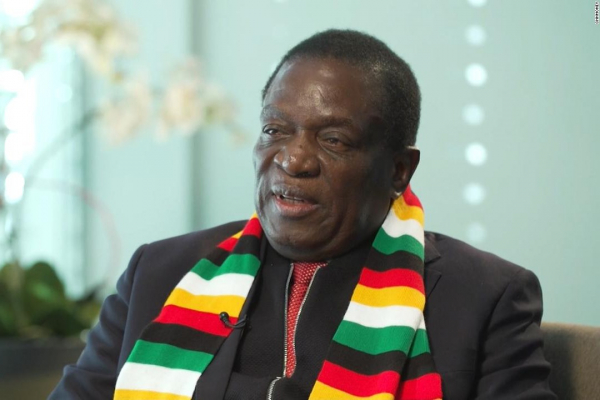
PRESIDENT Emmerson Mnangagwa says his administration will continue to prioritise revival of the economy as it has lagged behind for many years.
BY TATIRA ZWINOIRA
Mnangagwa was speaking at the “Old Mutual Anchoring in Africa” dinner that took place in Harare on Tuesday where he stated that government was committed to the ease and cost of doing business in the economy.
“My government continues to give the economy top priority having lagged behind for many years including in agriculture, mining, infrastructure development, service provision and finance. My government adopted the mantra ‘Zimbabwe is open for business’ as a rallying call to usher in a new impetus required to drive an economic renaissance of our motherland,” he said.
“We have committed ourselves as government to adopt an open door policy underpinned by transparency with the speed to improve the ease and cost of business in the economy. We have in the past spoken about the need to improve our status in the competitive environment. To this end, we are determined to focus our collective attention to improving the business environment, removing bureaucratic bottlenecks and exorcising the ruinous spirit of corruption among society.”
He said his administration was engaged in promoting investment-led economic recovery, job creation, national food security, effective provision of social services, respect for the rule of law and fostering an environment for private enterprise.
“We have pronounced a national vision for Zimbabwe to be a middle income country with a per capita income of $3 500 with increased investment, broad-based empowerment, decent jobs, and free from poverty and corruption by 2030,” Mnangagwa said.
The President was referring to the Zanu PF manifesto released last month, wherein the ruling party is seeking to become a middle income economy by 2030 should it win elections next month.
- Chamisa under fire over US$120K donation
- Mavhunga puts DeMbare into Chibuku quarterfinals
- Pension funds bet on Cabora Bassa oilfields
- Councils defy govt fire tender directive
Keep Reading
Zanu PF is also proposing becoming an economy with a similar gross domestic product per capita to other African countries such as Tunisia, Angola and Egypt.
However, based on the strategy the ruling party proposed in its manifesto, economists say that it largely ignores the structural decay in the country and is overly optimistic.
In that regard, the manifesto is littered with all the signature Zanu PF promises, but ignores all the practicalities on achieving goals, the analysts said.
For example, under housing, Zanu PF proposes to build 1,5 million medium-income housing units between 2018 and 2023, which would work out to about 821 housing units a day.
Apart from that, this is on top of a housing backlog of 1,3 million, which Real Estate Institute of Zimbabwe reported needs 15 to 20 years to address.
Currently, the state of the economy by definition can be described as depressed, with high unemployment, liquidity challenges, drop in investment interest, low production, heavy expenditure, leaving little revenue and negative trade, to name a few.











